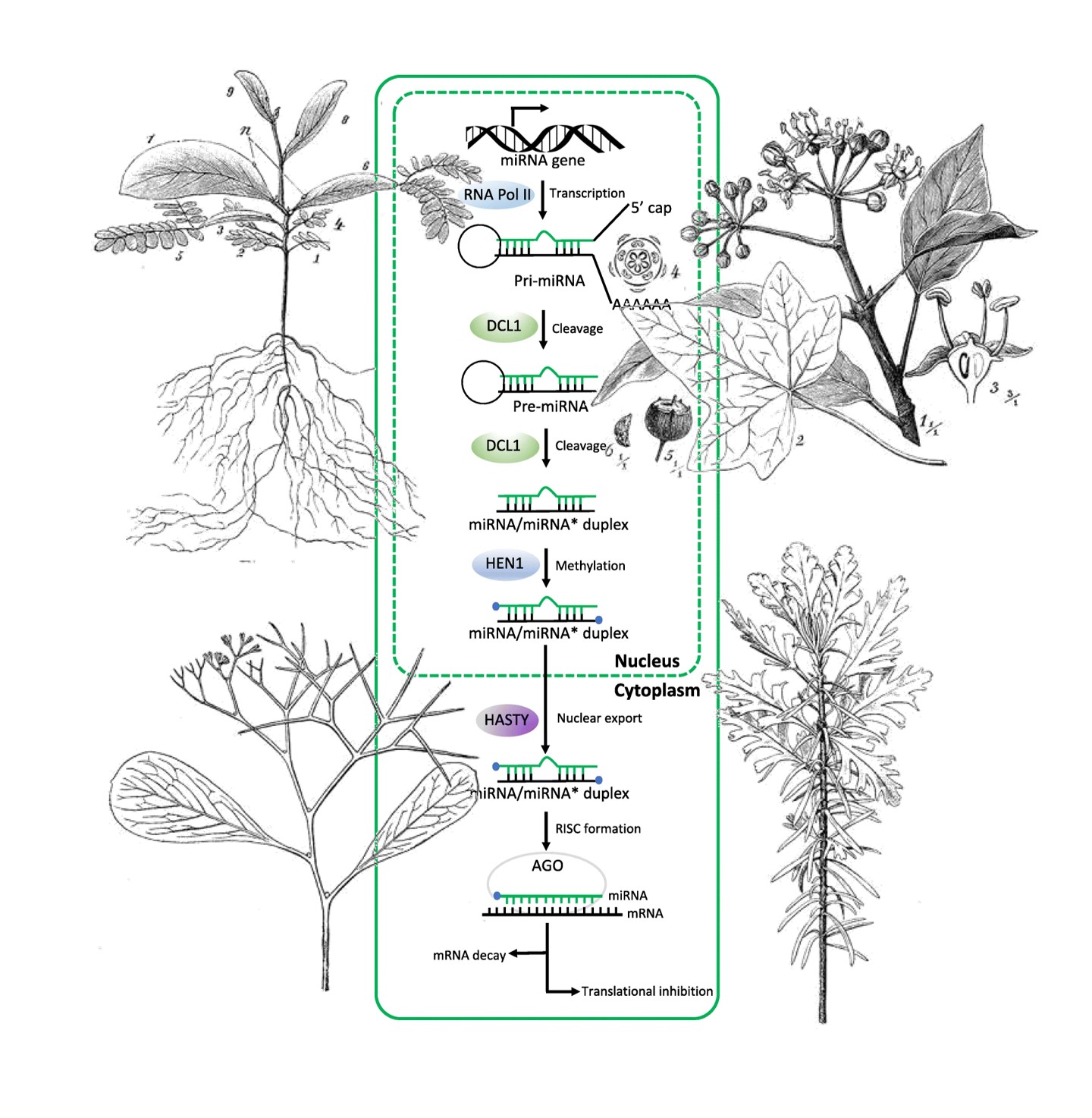Isabel Bartrina (Graz): Since their discovery in Caenorhabditis elegans in 1993 small RNA molecules have been found across many eukaryotic organisms, ranging from plants to mammals. Small RNAs are categorized into several classes, such as microRNAs (miRNAs) and small interfering RNAs (siRNAs), based on their mode of biogenesis. Once processed from their precursor transcripts, the mature small RNAs associate with Argonaute proteins to repress the target transcripts. In plants, it is now clear that endogenous small RNAs play a crucial role in gene regulation during plant development. By targeting major transcription factors, small RNAs work as inhibition signals that can diffuse across tissues and therefore have a central role in various developmental networks. Probably the best characterized example is their role in regulating developmental timing. The exact timing of devel-opmental transitions is crucial for reproductive success. If executed in an untimely manner, the plant may lack the energy required to reproduce effectively because of a compromised leaf func-tion, or may reproduce when environmental conditions are not favorable. In this talk, I will high-light the role of miRNAs in the regulation of vegetative phase change and discuss how the plant hormone cytokinin adds to the complexity of the regulatory network controlling this phase transi-tion.
Begin of page section:
Page settings:
End of this page section. Go to overview of page sections
Begin of page section:
Search:
Close
End of this page section. Go to overview of page sections
Search
Begin of page section:
Main navigation:
Page navigation:
- University
University
Developing solutions for the world of tomorrow - that is our mission. Our students and our researchers take on the great challenges of society and carry the knowledge out. - Research Profile
Research Profile
Scientific excellence and the courage to break new ground. Research at the University of Graz creates the foundations for making the future worth living. - Studies
Studies
Where is the best place to study? At the University of Graz. In an inspiring atmosphere of learning and research. With about 120 studies to choose from. For your way to the future. - Community
Community
The University of Graz is a hub for international research and brings together scientists and business experts. Moreover, it fosters the exchange and cooperation in study and teaching. - Spotlight
End of this page section. Go to overview of page sections
Begin of page section:
You are here:
University of Graz Events Involvement of small RNAs in the regulation of vegetative phase change in plants
End of this page section. Go to overview of page sections
07.12.2021
17:00 - 18:30
Institut für Biologie
Begin of page section:
Additional information:
End of this page section. Go to overview of page sections
End of this page section. Go to overview of page sections
